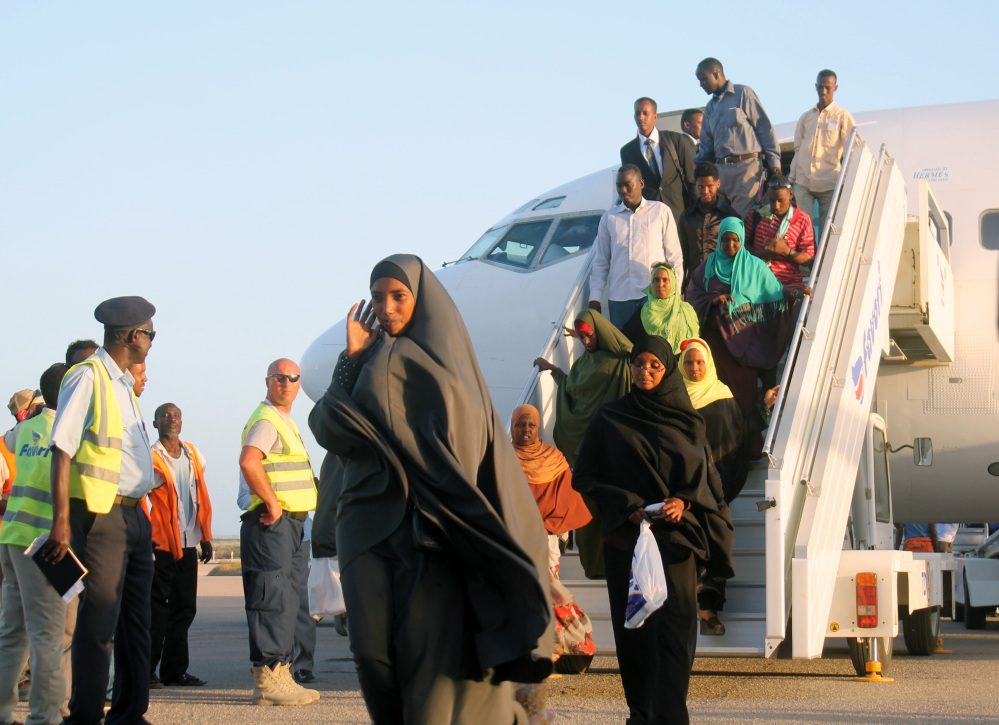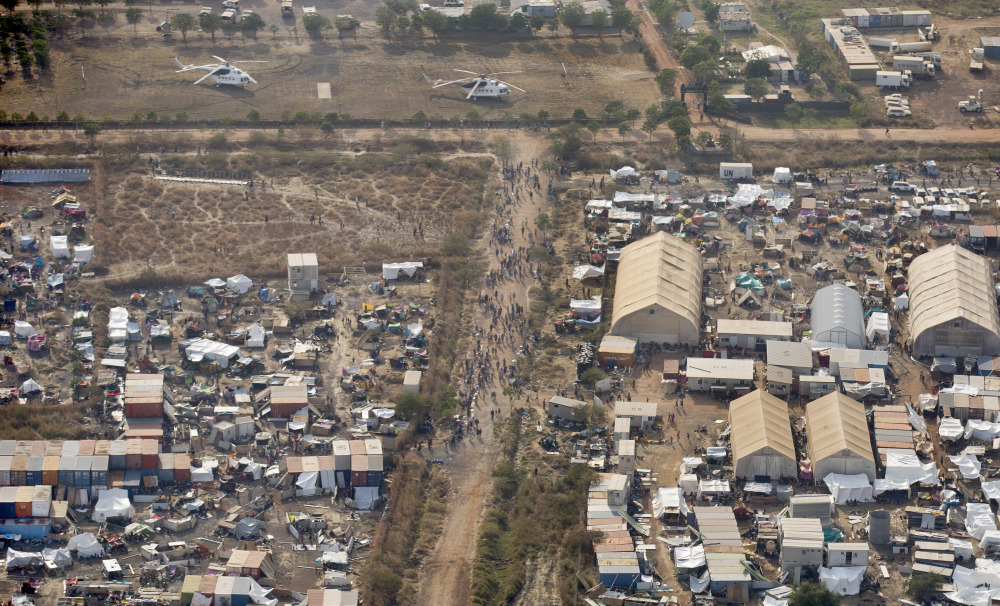JUBA, South Sudan — Heavy fighting erupted in Bor, South Sudan’s contested provincial capital of Jonglei state, as rebels moved to retake control of the town from government troops, a military official said Tuesday, signaling both sides were far from reaching the cease-fire deal that regional leaders hoped would be struck before the end of the year.
Government troops on Tuesday fought renegade forces loyal to former Vice President Riek Machar as well as a pro-Machar tribal militia known as the “White Army,” said military spokesman Col. Philip Aguer.
South Sudan’s government had been warning of a looming battle for Bor, which a renegade commander loyal to Machar briefly took before he was repulsed by government forces. That pro-Machar commander, Peter Gadet, has mobilized “elements of the White Army” in a bid to retake the town, according to Aguer. Bor is the town where gunfire hit three United States military aircraft trying to evacuate American citizens on Dec. 21, wounding four U.S. service members.
The recapturing of Bor, which is only about 120 kilometers (75 miles) from South Sudan’s capital, Juba, could give Machar an upper hand at the negotiating table, a possible reason why he has not yet agreed to begin talks.
South Sudan has been hit by unrest since Dec. 15, when fighting among presidential guards later spiraled across the country. Although Juba has since become calm, violence persists in other parts of the oil-producing East African country. Rebel forces still control Bentiu, the capital of oil-rich Unity state, and it appeared on Tuesday they would try to seize Bor from the 2,100 government troops who control the town, Aguer said.
Regional leaders under a bloc known as IGAD last week set Tuesday as the deadline for President Salva Kiir and Machar to start peace talks.
On Monday Uganda’s president, Yoweri Museveni, said neighboring countries would unite to “defeat” Machar if he doesn’t stop his rebellion. Museveni said regional leaders “shall have to go for” Machar in the event he rejects peace talks, an apparent military threat that raised the danger of a wider regional conflict. The United Nations and the African Union have said they support IGAD’s diplomatic efforts to end violence in the world’s newest country.
Machar has called for a negotiated cease-fire and wants all his jailed political allies freed before starting talks.
Although Kiir insists the latest unrest was sparked by a coup mounted by soldiers loyal to Machar late Dec. 15, this account has been disputed by some officials with the ruling party who say violence broke out when presidential guards from Kiir’s majority Dinka tribe tried to disarm guards from the Nuer ethnic group of Machar.
South Sudan has been plagued by ethnic tension and a power struggle within the ruling party that appears to have escalated after Kiir sacked Machar as his deputy earlier this year. Machar has criticized Kiir as a dictator and says he will contest the 2015 presidential election.
The U.N., South Sudan’s government and other analysts say the dispute is political at its heart, but has since taken on ethnic overtones. The fighting has killed more than 1,000 people and displaced up to 180,000, according to the U.N.
Muhumuza reported from Kampala, Uganda. Associated Press reporter Elias Meseret in Addis Ababa, Ethiopia, contributed to this report.
Send questions/comments to the editors.




Success. Please wait for the page to reload. If the page does not reload within 5 seconds, please refresh the page.
Enter your email and password to access comments.
Hi, to comment on stories you must . This profile is in addition to your subscription and website login.
Already have a commenting profile? .
Invalid username/password.
Please check your email to confirm and complete your registration.
Only subscribers are eligible to post comments. Please subscribe or login first for digital access. Here’s why.
Use the form below to reset your password. When you've submitted your account email, we will send an email with a reset code.